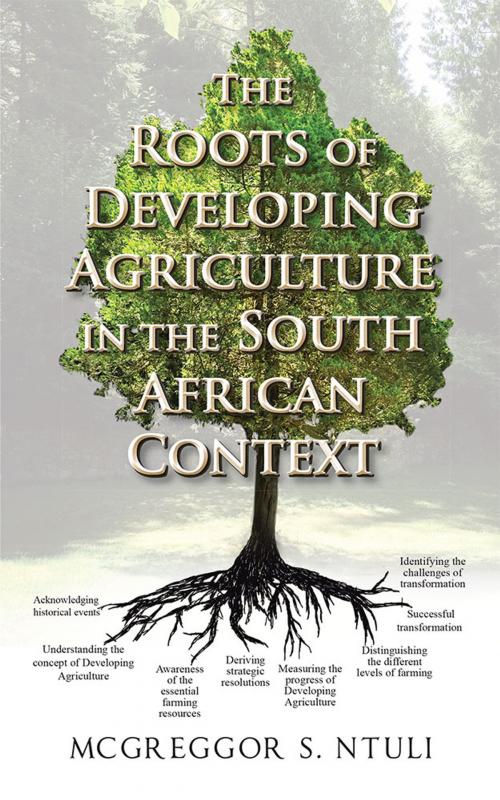The Roots of Developing Agriculture in the South African Context
Nonfiction, Social & Cultural Studies, Political Science| Author: | McGreggor S. Ntuli | ISBN: | 9781491887066 |
| Publisher: | AuthorHouse UK | Publication: | December 17, 2013 |
| Imprint: | AuthorHouse UK | Language: | English |
| Author: | McGreggor S. Ntuli |
| ISBN: | 9781491887066 |
| Publisher: | AuthorHouse UK |
| Publication: | December 17, 2013 |
| Imprint: | AuthorHouse UK |
| Language: | English |
The Roots of Developing Agriculture in the South African Context is meant to be a reader that addresses the current status and the possible future position of Developing Agriculture into perspective given the transformation its currently undergoing in South Africa. Much emphasis is deliberately placed on the experiences of the developing farmer and to a lesser extent that of the role-players of the industry. This means that the book is meant to focus on the actual proceedings of the industry, particularly at farmers level, as opposed to expounding on literature based findings or documented policies that do not reflect the actual state of affairs. The need of writing such a book came after realizing that the servants of this industry have varied perspectives in terms of the winning formula that would ensure its successful progression of refining the industry by uplifting emerging farmers of South Africa. An additional reason is that its the very same role players of the very same industry who dedicate much time in transferring technical information (that elaborates on the management of a farming business as well as how to produce agricultural products) to farmers, whilst continuously neglecting the need to identify and apply the principles that would ensure the attainment of the ultimate industrial goal of uplifting developing farmers so as to make positive contributions towards the local economy. As a result of the latter reason, the publishing of technical information has been one of the strongest points of South African agriculture. However, with all this information made available to farmers and various agriculturalists in abundance, the industry still experiences a low success rate in its attempt to transform previously disadvantaged farmers despite providing them with the relevant technical knowledge. This clearly shows the gap and the need of having such a book that will not only put the authors perspective and suggested solutions into perspective, but will also consolidate some of those that are being shared in all sorts of formal and informal gatherings. The above passage details the central theme of the book, which will be sufficient to cover the content of the subject. Therefore the scope of readers will include everyone in the agricultural sector as well as those who have the interest in and are affected by agriculture and current affairs of South Africa.
The Roots of Developing Agriculture in the South African Context is meant to be a reader that addresses the current status and the possible future position of Developing Agriculture into perspective given the transformation its currently undergoing in South Africa. Much emphasis is deliberately placed on the experiences of the developing farmer and to a lesser extent that of the role-players of the industry. This means that the book is meant to focus on the actual proceedings of the industry, particularly at farmers level, as opposed to expounding on literature based findings or documented policies that do not reflect the actual state of affairs. The need of writing such a book came after realizing that the servants of this industry have varied perspectives in terms of the winning formula that would ensure its successful progression of refining the industry by uplifting emerging farmers of South Africa. An additional reason is that its the very same role players of the very same industry who dedicate much time in transferring technical information (that elaborates on the management of a farming business as well as how to produce agricultural products) to farmers, whilst continuously neglecting the need to identify and apply the principles that would ensure the attainment of the ultimate industrial goal of uplifting developing farmers so as to make positive contributions towards the local economy. As a result of the latter reason, the publishing of technical information has been one of the strongest points of South African agriculture. However, with all this information made available to farmers and various agriculturalists in abundance, the industry still experiences a low success rate in its attempt to transform previously disadvantaged farmers despite providing them with the relevant technical knowledge. This clearly shows the gap and the need of having such a book that will not only put the authors perspective and suggested solutions into perspective, but will also consolidate some of those that are being shared in all sorts of formal and informal gatherings. The above passage details the central theme of the book, which will be sufficient to cover the content of the subject. Therefore the scope of readers will include everyone in the agricultural sector as well as those who have the interest in and are affected by agriculture and current affairs of South Africa.















